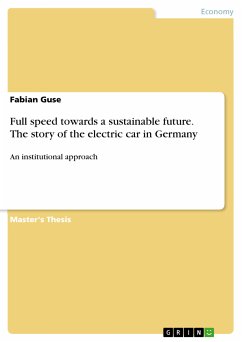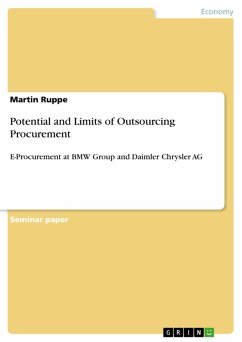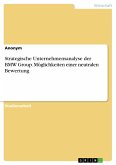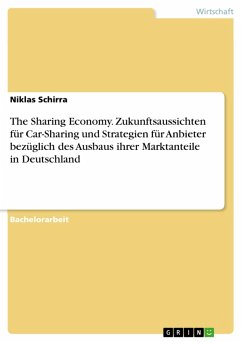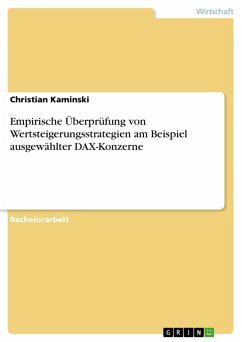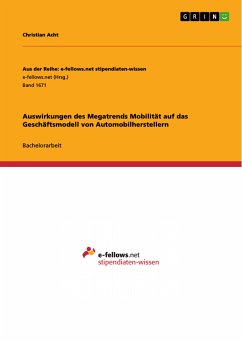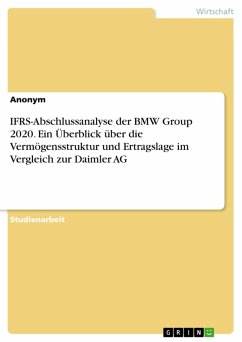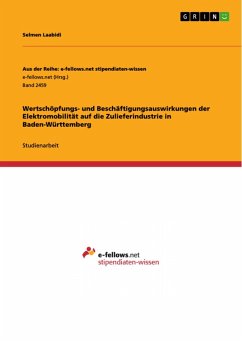Master's Thesis from the year 2013 in the subject Business economics - General, grade: 1,7, VU University Amsterdam , language: English, abstract: "I believe in horses, automobiles are a passing phenomenon"1 (Kaiser Wilhelm II, 1905) More than 100 years ago when the first motorized vehicles appeared on the streets, Kaiser Wilhelm II was not able to see the potential of this invention and how it would change the world he lived in. Today we are facing the next revolution of transportation technology, elec-tric mobility (e-mobility). In consideration of continuous scarcity of fossil resources and pro-gressive environmental issues caused by increasing amounts of CO2 emissions in our atmos-phere, a rethinking of universally accepted habits is needed. Public and private transportation account for 19% of the overall CO2 emissions in Germany and is therefore one of the largest contributors to climate change and local air pollution (Umweltbundesamt, 2011). This circumstance also shows the great political relevance of this topic as well as the need to make the whole industry more sustainable. A sustainable innovation like the electric car can help to decrease the negative externalities of economic growth and reduce the ecological footprint of a modern-day life. Against this background, the German government proclaims that Germany should be the leading market for e-mobility; aiming to have a diffusion rate of one million electric cars until 2020 (Delhaes, 2008). In order to achieve this, they are dependent on the innovation activities of the German automotive industry. But consumers as well as car manu-factures seem to be skeptical about this novelty, which results in a comparable small diffusion rate of only 7114 electric cars in the end of 2012 (Kraftfahrt-Bundesamt, 2013). For instance, in Denmark the diffusion rate of new electronic cars is 30 times higher than in Germany and even The Netherlands have a rate that is 8 times higher (Masson, 2013). The mentioned diffu-sion rate shows the total number of newly registered electric cars in comparison to the total number of traditional fuel cars within a year. This is curious on a first view as Germany has the largest automotive industry in the world, consisting of firms like BMW, Daimler, Opel and Volkswagen. One would hence expect great interest and a proactive stance from both the firms as well as the government in supporting this innovation. (...) Table of Content 1. Introduction 1.1. Research Objectives & Research Question 1.2. Research Contribution 1.3. Structure of the thesis 2. Theoretical Framework 2.1. Sustainable Innovation 2.2. Institutional Theory ()
Dieser Download kann aus rechtlichen Gründen nur mit Rechnungsadresse in A, B, BG, CY, CZ, D, DK, EW, E, FIN, F, GR, HR, H, IRL, I, LT, L, LR, M, NL, PL, P, R, S, SLO, SK ausgeliefert werden.

